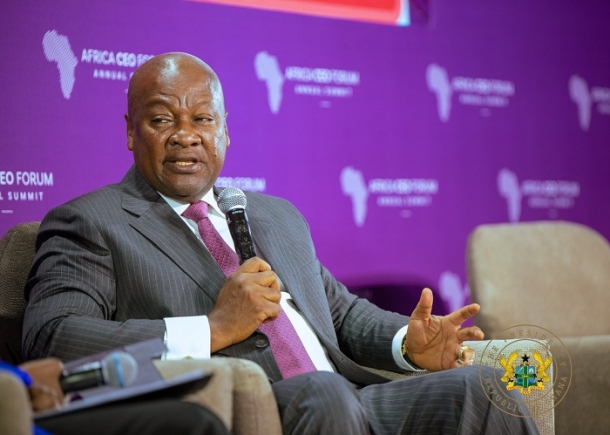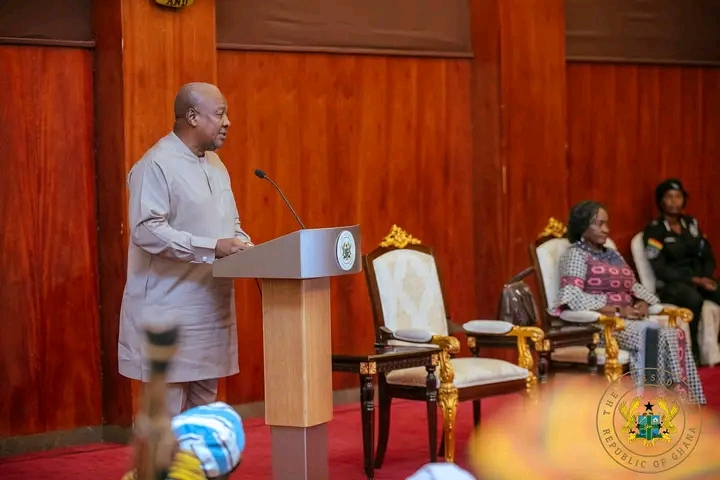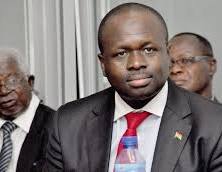President John Dramani Mahama has announced a sweeping reform plan that would allow Ghana’s metropolitan, municipal, and district assemblies (MMDAs) to raise their own funding through the issuance of bonds, in a move aimed at tackling the chronic underfunding of local infrastructure.
Speaking at the 9th Ghana CEO Summit in Accra, the President said the proposed reform is designed to decentralise development financing and empower local authorities to take charge of projects such as roads, markets, schools, and other essential infrastructure.
“For too long, the over-centralisation of financing has held back progress,” Prez. Mahama told a gathering of business leaders and policymakers. “We will empower MMDAs to raise funds independently for infrastructure by issuing bonds tied to credible, bankable projects.”
The initiative, he explained, will require amendments to both the Public Financial Management Act and constitutional provisions governing public finance. But he stressed that the plan is not just about shifting power, it’s about building a system that works for communities across the country.
“Districts know their priorities better,” the President said. “If you wait for Accra to fix your feeder roads, you may wait forever.”
The announcement marks a significant policy shift and forms part of what Mr Mahama described as a broader “economic reset strategy” focused on restoring public finance stability, expanding infrastructure, and improving investor confidence.
To ensure accountability, the President said any bond programme would be backed by strong fiscal oversight mechanisms. He cited his previous administration’s introduction of tools like the Ghana Integrated Financial Management Information System (GIFMIS) and the Treasury Single Account as examples of efforts to bring discipline to public spending.
Mr Mahama also took aim at the previous administration, accusing it of dismantling financial safeguards and contributing to Ghana’s recent debt crisis.
“A vibrant district economy is the foundation of a strong national economy,” he concluded, underscoring his belief that sustainable development must be driven from the ground up.
The proposed changes, if implemented, could redefine the way local development is financed in Ghana, and test the country’s ability to balance decentralisation with sound financial management.















